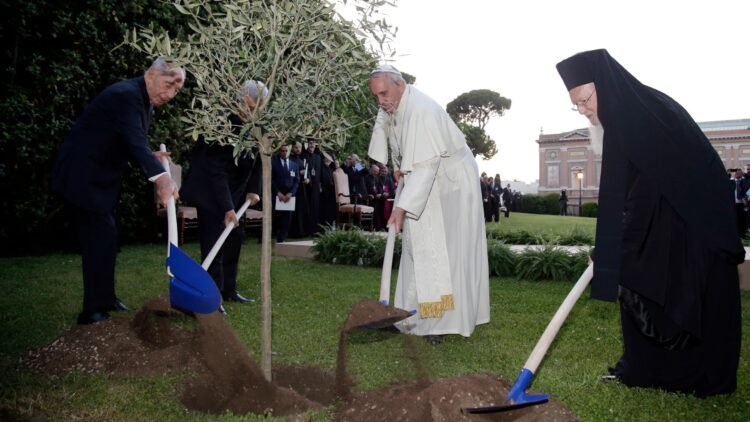In the hours following the death of Pope Francis, tributes flooded in from leaders around the globe. Yet in Israel, the reaction was unusually muted — and telling.
A brief post on X from Israel’s Foreign Ministry offering condolences — “Rest in peace, Pope Francis. May his memory be a blessing.” — was swiftly deleted, raising eyebrows and signaling a deeper diplomatic unease. Days passed before Prime Minister Benjamin Netanyahu issued a minimalist 28-word message, and Foreign Minister Gideon Saar remained silent. Only President Isaac Herzog, whose role is largely ceremonial, offered immediate and heartfelt condolences, praising Francis as “a man of deep faith and boundless compassion.”
The silence didn’t go unnoticed.
Francis’ papacy had initially seen warming ties with Israel. His 2014 visit to the Holy Land was seen as a milestone, and his rapport with then-President Shimon Peres and other Israeli leaders signaled an era of improved Vatican-Israel relations. But the landscape shifted dramatically with the outbreak of the Israel-Hamas war on October 7, 2023.
While Pope Francis condemned Hamas’ attack on Israeli civilians, he also consistently criticized Israel’s military operations in Gaza, labeling them disproportionate and even “immoral.” In several statements, he called for investigations into whether the offensive could amount to genocide — a suggestion that Israeli officials vehemently reject.
According to Dr. Amnon Ramon, a senior researcher at the Jerusalem Institute for Policy Research, Francis walked a tightrope — offering prayers for hostages held in Gaza while publicly mourning the massive Palestinian civilian toll. His empathy extended to Gaza’s tiny Catholic community, led by a parish priest who, like Francis, hails from Argentina.
“This pope was never afraid to speak uncomfortable truths,” said Wadie Abunassar, head of a forum representing Christians in the Holy Land. “He spoke out, even when it went against the Israeli government’s narrative.”
Francis’ stance was shaped not only by current events but by his long-held belief that peace cannot be achieved through violence. As Rev. David Neuhaus, a priest who served as spokesman during the pope’s 2014 visit, put it: “He was consistent from the start — for him, war is always a defeat.”
Yet his moral clarity came at a cost. Francis’ public condemnations strained relations with Israel’s increasingly right-wing leadership. And the lack of a high-level Israeli delegation at his funeral, set to be attended by major global leaders including French President Emmanuel Macron and former U.S. President Donald Trump, only deepened the sense of detachment. Israel’s representative will be its ambassador to the Vatican — a low-profile presence attributed officially to “scheduling conflicts” and the funeral falling on the Sabbath.
The irony is stark: Francis, known for championing interfaith dialogue, spent his life fostering deeper Christian-Jewish understanding. Under his leadership, the Vatican solidified ties with global Jewish organizations, denounced antisemitism, and reached across religious divides. Even in death, his legacy lives on — in churches, synagogues, and mosques alike.
But in Israel, his passing has reopened a debate over how the state engages with religious figures who dare to challenge its military policies.
“He was the head of the largest church in the world, a head of state, and a man respected by many Israeli citizens — Christian and Jewish alike,” said Abunassar. “He deserved more than silence.”
As the Church of the Holy Sepulcher held a solemn requiem mass in Jerusalem, attended by representatives of many Christian denominations, one hope echoed through the ancient stone walls: that Pope Francis’ successor will carry forward his vision of compassion, peace, and dialogue in a world that remains dangerously divided.

 English
English



























































